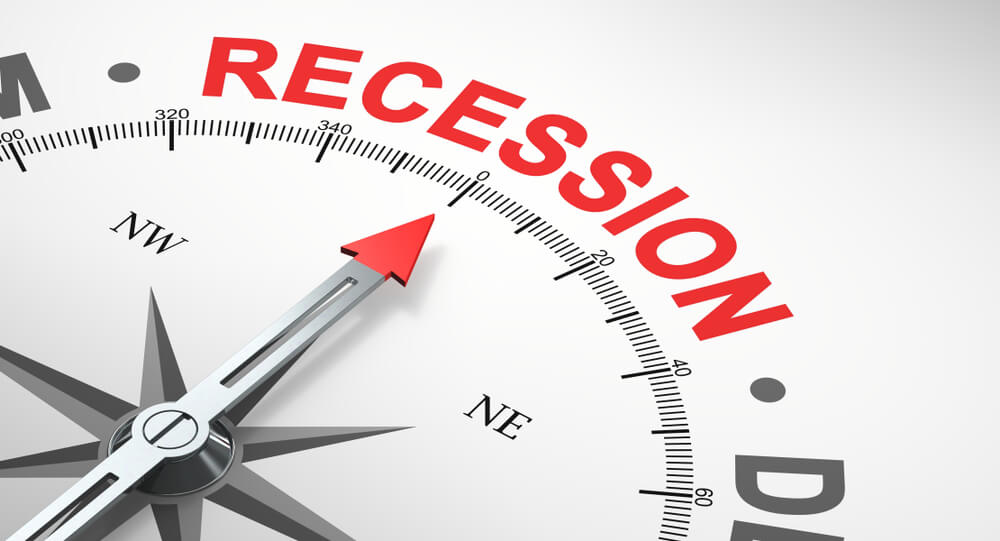If it’s not already here, it’s coming soon and that’s why you need to know how to protect your portfolio against a recession.
The International Monetary Fund projects the global economy will contract by as much as 3% in the coming quarter.
Banyan Hill Publishing economist and economic historian Ted Bauman said that the “worst recession must of us will ever see in our lifetimes” is coming.
For investors, knowing a recession is coming is good, but understanding how you should protect your portfolio against it is even better.
We’ve laid out some simple steps to help you protect your portfolio against a recession.
How to Protect Your Portfolio Against a Recession
What is a Recession?
We’ve covered this at length, but here is a quick refresher on what a recession is.
An economic recession is normally tied to when the gross domestic product (GDP) growth rate is negative for two consecutive quarters or more.
However, the National Bureau of Economic Research looks at other factors to determine whether the U.S. economy is in an official recession. The NBER announces when recessions start and stop, and measure the stages of the business cycle.
The official definition of a recession by the NBER is: “A significant decline in activity spread across the economy, lasting more than a few months, visible in industrial production, employment, real income and wholesale retail trade.”
By including these other factors, the NBER can be more precise in its judgment of when a recession begins. It’s also not limited to just using GDP as the deciding factor.
Where to Invest in a Recession
One of the biggest things investors can look for in a recession is stability.
Markets will be volatile, but a way to add stability to your portfolio is to allocate a percentage of it to dividend-paying stocks.
Look for Dividends
A dividend is a payment made by a company to its shareholders. It is paid by the revenue the company earns. A dividend can go up or down, depending on revenue in any given quarter (Pro tip: Check out our best dividend stocks to buy in a market crash here).
Bonds Are a Good Option
Another way to protect your portfolio against a recession is by buying safe havens. These are things like Treasury bills, bonds or notes. They are safe because they have the full backing of the U.S. government.
One big advantage of investing in bonds is you get a return on the principal. When the bond term expires, the borrower is basically paying that principal.
The biggest way to make money off bonds is through the interest payments. You get regular interest payments based on the value and interest rate of the bond.
Now, it’s not likely that your return on a bond investment will be higher than that of stocks, but the income is pretty much guaranteed.
Striking Gold
Another safe haven is precious metals, like gold.
You can invest in gold a couple of different ways, but the most prominent are these:
- Physical gold — Actual gold bars and coins have made up nearly two-thirds of annual investment gold demand. The demand for bars and coins has quadrupled since the early 2000s. That demand has spread across the globe into emerging markets like China.
- Gold-backed ETFs — Gold exchange-traded funds are about one-third of total investment gold demand. Some of the more popular gold-backed ETFs are SPDR Gold Shares ETF (NYSE: GLD) and Gold Trust iShares (NYSE: IAU), but there are several others to look at.
- Gold derivatives, futures and options — If you are a more seasoned investor, looking at gold derivatives or futures could be a way to invest. They are traded both over-the-counter and on exchanges, but they come with much higher risk.
- Gold mining stocks — Rather than invest in actual gold, you may decide to invest in companies that mine gold. While their stock price may have a tie to the actual price of gold, it is also dependent on future earnings, company growth and other things that factor into the stock price of a company.
As you can see, there are a number of different ways to invest in gold.
Investment Strategies to Protect Your Portfolio Against a Recession
Markets are already very difficult to predict. They are even more so in a recession.
That’s why the best strategy to protect your portfolio against a recession is diversification. Gold, bonds and dividend stocks are a good start.
Switching your portfolio allocation to more bonds over stocks is the best move. Something like 30% stocks and 70% bonds can help reduce risks associated with a recession. You can even convert some of your holdings into cash, just to be safe.
But there are other sectors you can look at to find stocks that perform better than most.
The health care and senior-living sectors traditionally perform better than others during a recession. You can get into those easily with either an ETF or real estate investment trust, which automatically diversifies your holdings.
Physicians Realty Trust (NYSE: DOC) and the Vanguard REIT ETF (NYSEARCA: VNQ) are two such options. These are solid because, as REITs, they return their profits as payouts to shareholders.
Besides health and senior living, garbage companies and consumer product providers have also done better than the market in a recession.
The key here is to do your research to find ways to guard your portfolio against a recession. Losses are going to happen, but you can mitigate them with diversification and reallocation.
Know that recessions happen and some last longer than others. It will get better.
But, in the meantime, these are tips on how to protect your portfolio against a recession.
